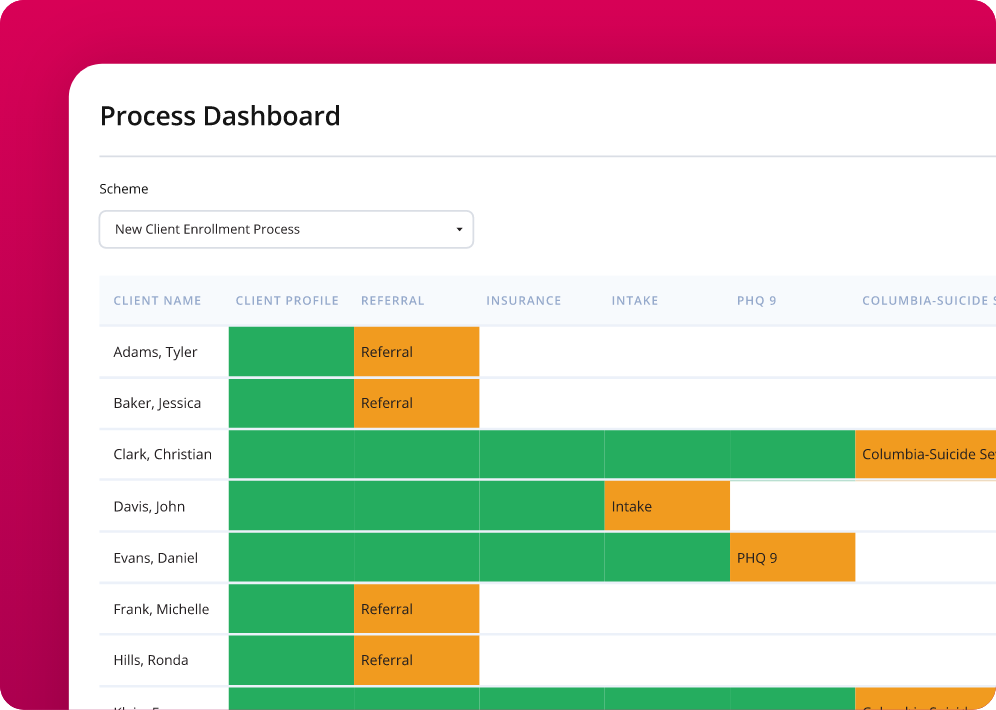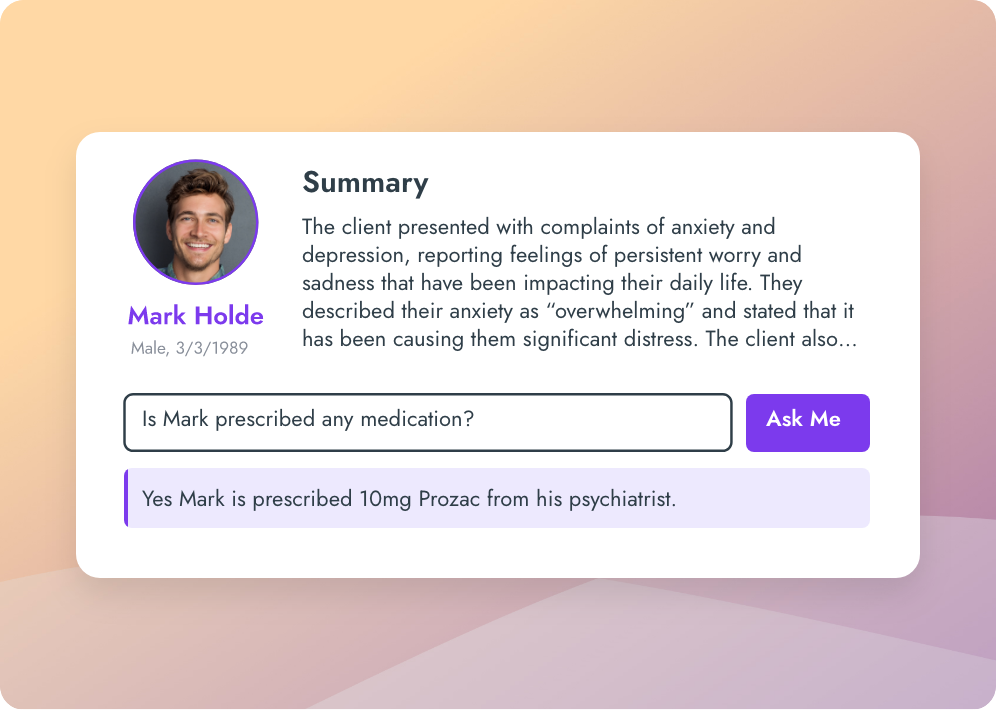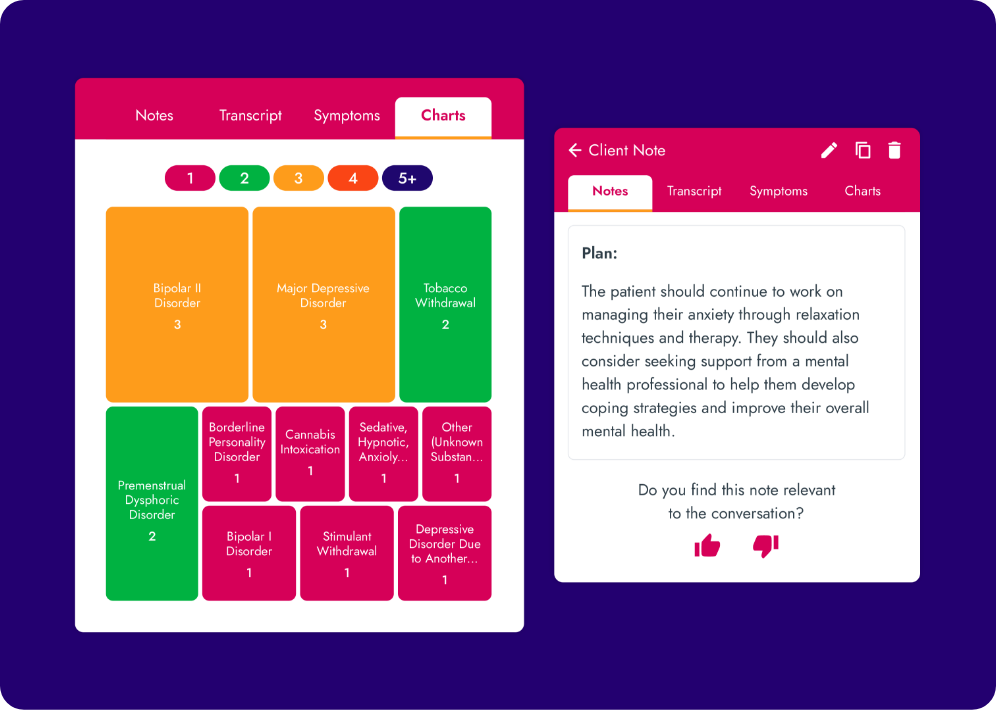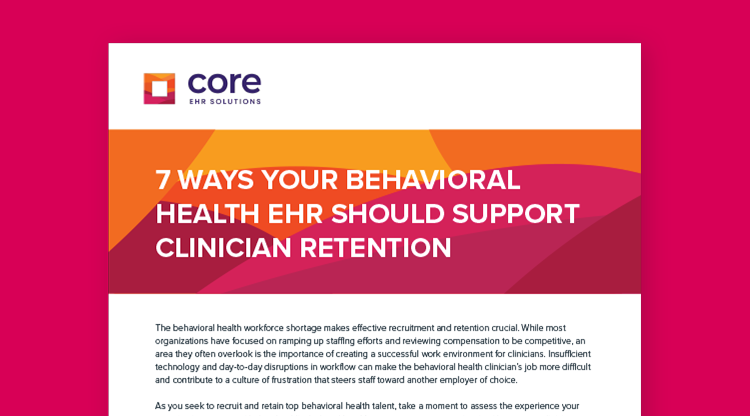Better Outcomes Through Innovative Substance Use Disorder Software
For substance use disorder (SUD) organizations, Core delivers integrated, best-practice driven solutions that unify behavioral, physical, and social health to promote lasting recovery and whole-person well-being. Our technology helps providers properly deliver and get reimbursed for services while supporting clients across multiple levels of care. With built-in standards, intuitive workflows, and AI-powered insights, Core streamlines operations and strengthens compliance, enabling SUD organizations to deliver sustainable success and helping providers foster stronger client relationships throughout the care journey.





Smarter Tools for Better SUD Care, Compliance, and Performance
Comprehensive care, simplified
Core makes it easier to integrate substance use, mental health, and physical health services across all ASAM levels of care. From treatment planning to care coordination, providers can track clients through transitions, manage co-occurring conditions, ensure continuity, and deliver more effective, comprehensive support.

Compliance and engagement built in
Core aligns with SAMHSA, CARF, and state licensing standards, embedding quality metrics, documentation requirements, and audit-readiness tools to help programs meet funding and compliance mandates without slowing care delivery.

Performance and reimbursement optimized
Embedded revenue cycle management simplifies complex SUD billing and reduces denials. Automated tracking, dashboards, and reporting provide visibility across services and payers, while quality program support delivers benchmarking data to improve efficiency and ensure financial sustainability.

7 Ways Your Behavioral Health EHR Should Support Clinician Retention
Take a moment to assess the experience your organization creates with this important checklist examining common workflow best practices.

Behavioral Health Solutions Built by Experts

Scalable EHR for Multi-Service Care
- Automate tasks and streamline workflows to boost productivity
- Unify teams across sites for whole-person treatment
- Improve outcomes while strengthening your bottom line

AI-powered EHR for modern care
- Intelligent EHR with built-in clinical and RCM functionality
- Smart tools that accelerate daily tasks and improve efficiency
- Built to drive better outcomes through data-driven care

Fast, accurate, mobile documentation
- Ambient documentation automates notes
- Symptom and trend tracking guides interventions
- Streamlined processes improve care efficiency and outcomes

Mobile Documentation at the Point of Care
- Real-time EVV and time tracking validate services
- Notes, medications, and goals captured during care delivery
- Connected workflows improve DSP oversight, billing, and outcomes
Thought Leadership and Thought Starters

7 Ways to Tell If Your Behavioral Health EHR Supports Clinician Retention
Take a moment to assess the experience your organization creates with this important checklist examining common workflow best practices.

